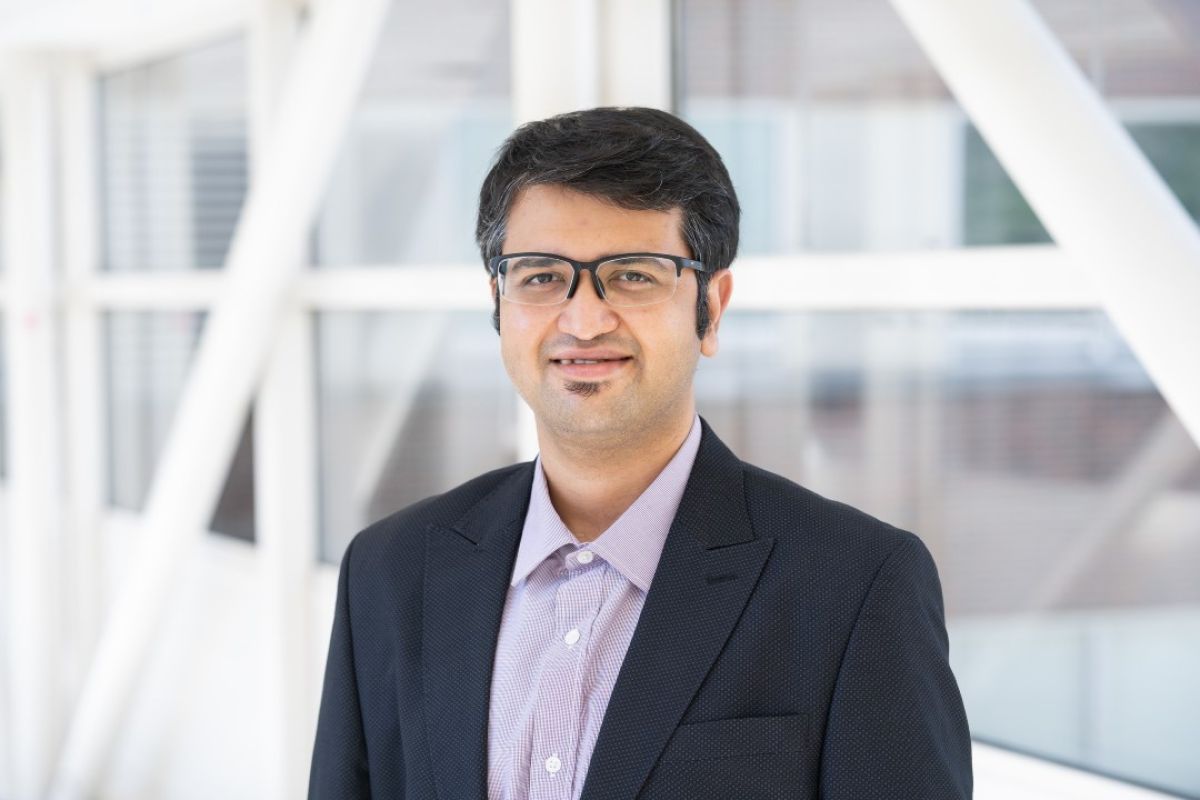Highlights
- Findings of preclinical study point the way to promising combination therapy
- Protein agrin seen as potential biomarker for determining treatment response
- Study published in Advanced Science; further findings to be presented at AACR
News — BUFFALO, N.Y. — Treatment resistance and relapse in the most common type of lung cancer can be traced to a protein called agrin, according to a preclinical study led by Roswell Park Comprehensive Cancer Center. Results of , led by , Assistant Professor of Oncology, Department of Pharmacology & Therapeutics at Roswell Park, appear in the journal Advanced Science.
Agrin is present on the surface of cells and in the extracellular matrix (ECM), forming a network of proteins and other molecules that fill in the space between cells. Dr. Chakraborty and his team report that mutations in the Epidermal Growth Factor Receptor (EGFR) gene — which contribute to the growth of several types of cancer — result in the overexpression of agrin in the ECM, increasing agrin’s ability to support the progression of lung adenocarcinoma, the most common type of non-small cell lung cancer. This work identifies a new mechanism by which agrin can support EGFR’s ability to promote cancer and therefore is of high clinical importance.
“Targeting agrin is expected to fill a major gap in boosting the effectiveness of EGFR therapies, thereby reducing the risk of lung cancer relapse,” says Dr. Chakraborty. Using lung cancer cell lines, preclinical models and human specimens, the team demonstrated that progression of the disease can be interrupted with a novel combination therapy aimed at suppressing agrin in the lung cancer environment.
“We also anticipate that in the future patients may benefit from a routine blood test that would determine the level of agrin in their serum, indicating their response to EGFR therapies and their potential risk of relapse of progressive lung cancer,” he adds. “This would be of great benefit for guiding treatment decisions.”
Dr. Chakraborty will outline the findings of the study in detail during a poster presentation at the 2025 annual meeting of the American Association for Cancer Research (AACR) at the McCormick Place Convention Center in Chicago, Illinois. He will present “” Sunday, April 27, from 2–5 p.m. CDT in Section 53.
The research team led by Dr. Chakraborty included study first author Reza Bayat Mokhtari, PhD, a postdoctoral Research Affiliate at Roswell Park, as well as collaborators from the A*STAR Institute of Molecular and Cell Biology, Singapore; the Frederick National Laboratory for Cancer Research at the National Cancer Institute; and the Markey Cancer Center at the University of Kentucky.
In 2015 Dr. Chakraborty that agrin plays a role in the development and progression of liver cancer. Since then, he has developed several strategies for treating cancer by targeting agrin; more recently, he has identified agrin’s potential as a tissue-repair and wound-healing agent. continues to investigate other aspects of how cancer cells respond to specific components of the extracellular matrix.


